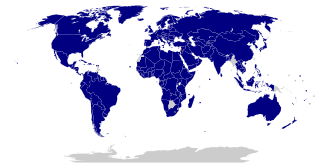
This is a list of Israel's ambassadors to Japan. The ambassadors are based in Tokyo.

This is a list of Israel's ambassadors to Japan. The ambassadors are based in Tokyo.

The foreign policy of Lebanon reflects its geographic location, the composition of its population, and its reliance on commerce and trade. Until 2005, Lebanon's foreign policy had been heavily influenced by Syria. The framework for relations was first codified in May 1991, when Lebanon and Syria signed a treaty of mutual cooperation. This treaty came out of the Taif Agreement, which stipulated that "Lebanon is linked to Syria by distinctive ties deriving strength from kinship, history, and common interests." The Lebanese-Syria treaty calls for "coordination and cooperation between the two countries" that would serve the "interests of the two countries within the framework of sovereignty and independence of each." Numerous agreements on political, economic, and security. After Syria's military withdrawal in 2005, Lebanon's foreign policy charted a more independent course.

Tel Aviv University (TAU) is a public research university in Tel Aviv, Israel. With over 30,000 students, it is the largest university in the country. Located in northwest Tel Aviv, the university is the center of teaching and research of the city, comprising 9 faculties, 17 teaching hospitals, 18 performing arts centers, 27 schools, 106 departments, 340 research centers, and 400 laboratories.
The Embassy of Israel to Nepal is the diplomatic mission of Israel in Nepal. The Embassy was established in March 1961 after diplomatic relations were established between the two countries in June 1960, under the leadership of David Ben-Gurion, the first Prime Minister of Israel and B.P. Koirala, the first elected Prime Minister of Nepal.